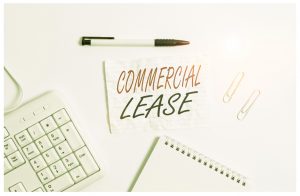The COVID-19 pandemic has wreaked havoc along the entire economic landscape, and small businesses in the United States, such as now-deemed-essential sign shops, are feeling the brunt of this slowdown. Many sign makers have experienced a significant decrease in work orders and profits, while financial assistance has been hard to come by for businesses. And as a chain reaction, landlords are finding that their rents are either down or just not being paid.
Sign Builder Illustrated recently spoke with Julio P. Gonzalez about this situation and how small sign shop owners prepare and react during these difficult, uncertain economic times. Gonzalez is the founder of the Gonzalez Family Office and the CEO and Founder of Engineered Tax Services, Inc. (ETS). ETS is the country’s largest specialty tax engineering firm that specializes in the preservation of wealth and United States’ job creation through IRS engineering-based services to include research and development manufacturing tax credit and grant studies, energy tax incentives studies, cost segregation deprecation studies for buildings, Opportunity Zone studies, real estate state and local incentive studies, and alternative tax optimization studies. He has also appeared on Fox News, and we thank him for taking the time to speak with us on this subject matter.
Gonzalez’s advice for sign shop owners—be as proactive as possible when applying for loans and always keep the communication lines with their landlords open.
SBI: What types of funding programs are available for sign shop owners and how should they approach them?
Julio Gonzalez: Small sign shop should not sit back. First I would immediately go to the Small Business Association’s Web site and apply for the 7(a) Emergency Loan program. This program is available to all small businesses and is for working capital. It’s based on the credit score of the individual and not so much the company.
The benefits for this program are that it’s all working capital. The payments can be paid back over thirty years at very low interest, and they can start next year.

SBI: What advice do you have for sign shop owners who might have missed out on the initial Paycheck Protection Program (PPP), particularly since more money ($310 billion for the Payment Protection Program and small business loans, bringing the total authorized aid to $659 billion) will be available during the next rollout?
JB: The government has indeed replenished the SBA Paycheck Protection Program. [Editors Note: It is scheduled to start on Friday, April 24.] To apply for this program, you have to go specifically to your bank.
The small businesses had less luck than the bigger businesses getting through on the first crutch of money under this program. My guess is that those businesses that were successful had a much closer relationship with their banks.
Small sign shop owners should go to the bank they use and talk to the people that they know there and get them to help. The first round of money ran out in fourteen days, and this will run out quicker. They should immediately go to the bank as soon they read this article and start getting that in place.
The reason this is important is because this is the money used for their payroll, their rent, their utilities, their mortgages, etc., and it is all forgiven. So it’s basically money that would never have to be paid back for that program. The qualification for this is that you’re eligible up to two-and-a-half times your monthly average payroll.
This is a phenomenal program that can give these companies in the sign industry a couple months’ breathing room on payroll. As mentioned earlier, the 7(a) Emergency Loan program is available for working capital with long payback, so both these programs can help sign shop owners.
Fortunately, with this next round of funding from the SBA, they have centralized some of the monies to local smaller banks; so hopefully, some of these companies will be with smaller banks and have money reserved for them.
I cannot stress enough that it is really important sign shop owners get in [at their bank] and push hard with the relationships they have there. Remind them who you are as a client and why this [program] is important to them. They cannot afford to be reactive. I saw some of my smaller businesses get hurt during the first rollout because they were waiting to hear back from the bank. And if you’re an entrepreneur, you typically can’t do that.
SBI: What about the Main Street Loan program? Can you tell our readers a bit more about it?
JG: Sure. The Main Street Loan Program came out from the [U.S.] Treasury, and it’s basically another working capital type of loan program like the SBA emergency loan program. It’s another source of funding for funding—low interest rates and long-term payment programs. Like the [SBA 7(a)] program, you do have to go through your local bank to apply for it.
I would advise sign shop owners to apply with the SBA 7(a) emergency loan program, the PPP, and the Main Street program. This way, they’re at least in line for all three programs, and hopefully one or two will come through and make a difference in them staying open or not.
SBI: Are there any other financial programs to consider?
JG: Yes. State and local Chambers are starting to come up with grant programs, and I recommend all small businesses reach out to them and apply. The U.S. Chamber of Commerce established a grant program for small businesses up to $10,000. This is free money. When you’re in business, the government is your partner.
 SBI: Do you have any advice for how sign shop owners should be interacting with their landlords now, especially for those who may be worried about being able to keep up with their rent?
SBI: Do you have any advice for how sign shop owners should be interacting with their landlords now, especially for those who may be worried about being able to keep up with their rent?
JG: They should let their landlords know that they have been making application for these monies through these programs. Let your landlord know that, when you get funded, you’d like to catch up on the rent then. Find out if you could get a few months of rent forgiveness or at least be able to put that rent on at the end of the lease, so that, as these loan programs come through, you can catch up at a later time.
I think landlords understand the situation these shop owners are in because they’re doing the actual same thing themselves with the banks. They’re telling them that they need a few months’ forgiveness or an extension on the loan payments because their tenants aren’t paying them.
However just to ask for it and not have a plan is definitely not the way to go. Go to your landlord and tell them that you have a plan and that you have applied for these programs. Let them know that you want to catch up and be good tenants and that you’re working as diligently as you can to be funded. Tell them these monies are earmarked towards rent. This way, the landlord knows that you have a plan and that you’re not trying to get away with something.
SBI: Should sign shop owners negotiate with the bank on loan payment deferral?
JG: Yes, this is essential. Banks have been pretty good in responding to loan deferrals, and so too have the credit card companies. Sign shop owners should go to their bank and credit card companies and ask them if they can have three months of deferrals. This allows for the money to be lent to them, and I think everyone understands that.
SBI: What strategies should sign shop owners be talking about with their accountants now?
JG: This is an important question because there are other tax changes that came with the Coronavirus Aid, Relief, and Economic Security (CARES) package, as well as other tax changes that came with the stimulus programs from the federal government program prior to the CARES package. It’s important to get together with your CPA and your payroll company.
Right now, we get to defer payroll taxes as small business owners. Make sure you’re deferring payroll taxes, so you don’t have to pay those currently. This will be a 7-1/2 percent immediate savings on your payroll. The goal is to save that money and ultimately hope that it is permanently forgiven in these upcoming packages. We can also defer 401K contributions, so you’ve got to stop matching that.
On the tax rules, we have some changes that allow the sign shop owners to take advantage of some additional write-offs and be able to go back and amend previous tax returns for refunds.
SBI: Sign shops also work with financing companies to make payment on larger-size or expensive pieces of equipment. What can shop owners who are making these payments do to protect themselves today?
JG: My understanding from our clients is that they’ve had great success working with leases on equipment and having a ninety-day deferral. Again I would suggest working with your financing company.
There’s also an ability to go straight to the people you’re leasing equipment from and see if there are any discounts or any ways to renegotiate the lease rate of payments. I think people are listening and allowing some of that as well.
SBI: What lessons do you think are being learned during this crisis?
JG: I think this will teach all small businesses that they always have to have a Plan A, Plan B, and a Plan C not only from an economic standpoint from when these things happen but also from a business standpoint. I’ve heard a lot of businesses working closely with their family members and friends to help with some capital raising or investing some money with some family members to come in on the business and things like that.
—Jeff Wooten











